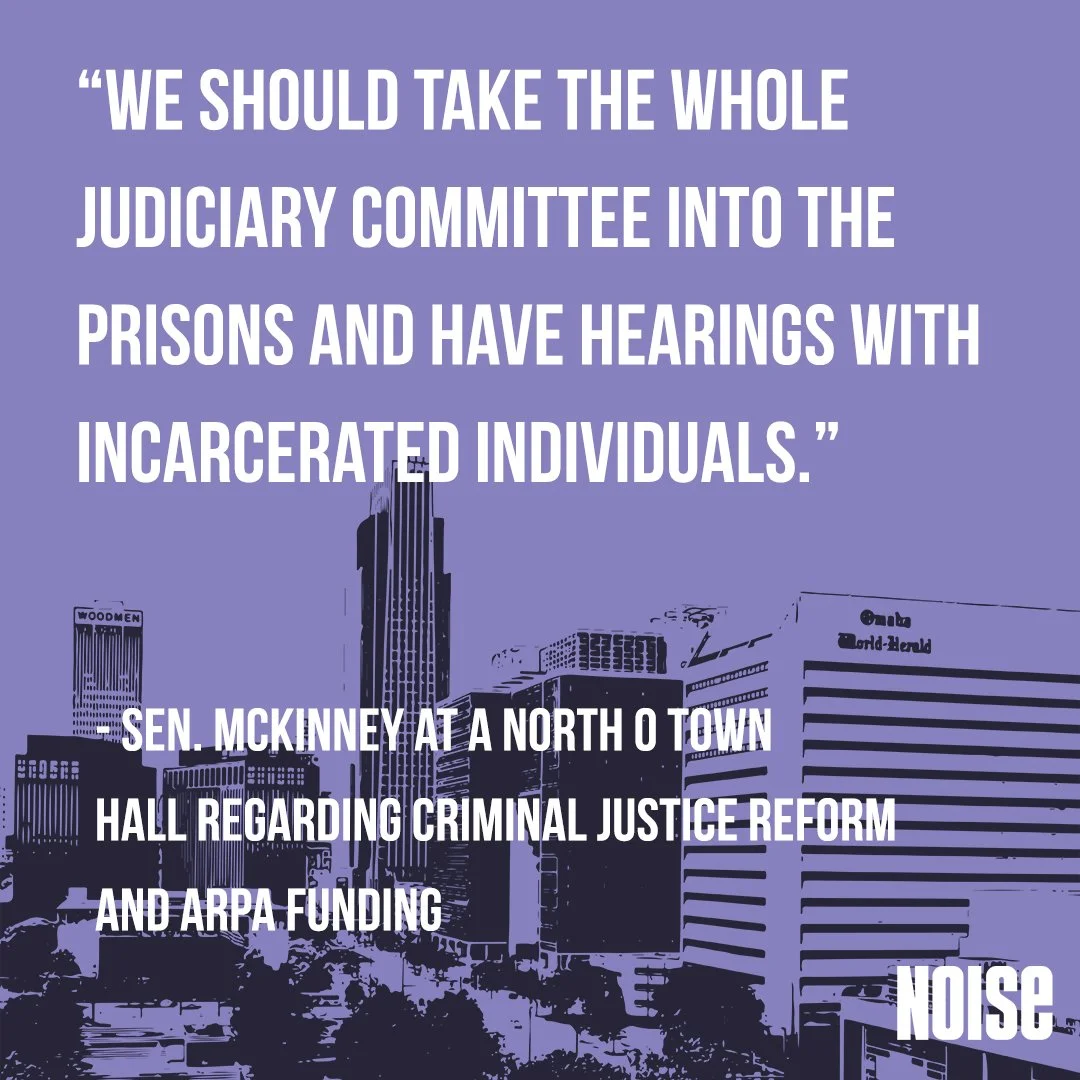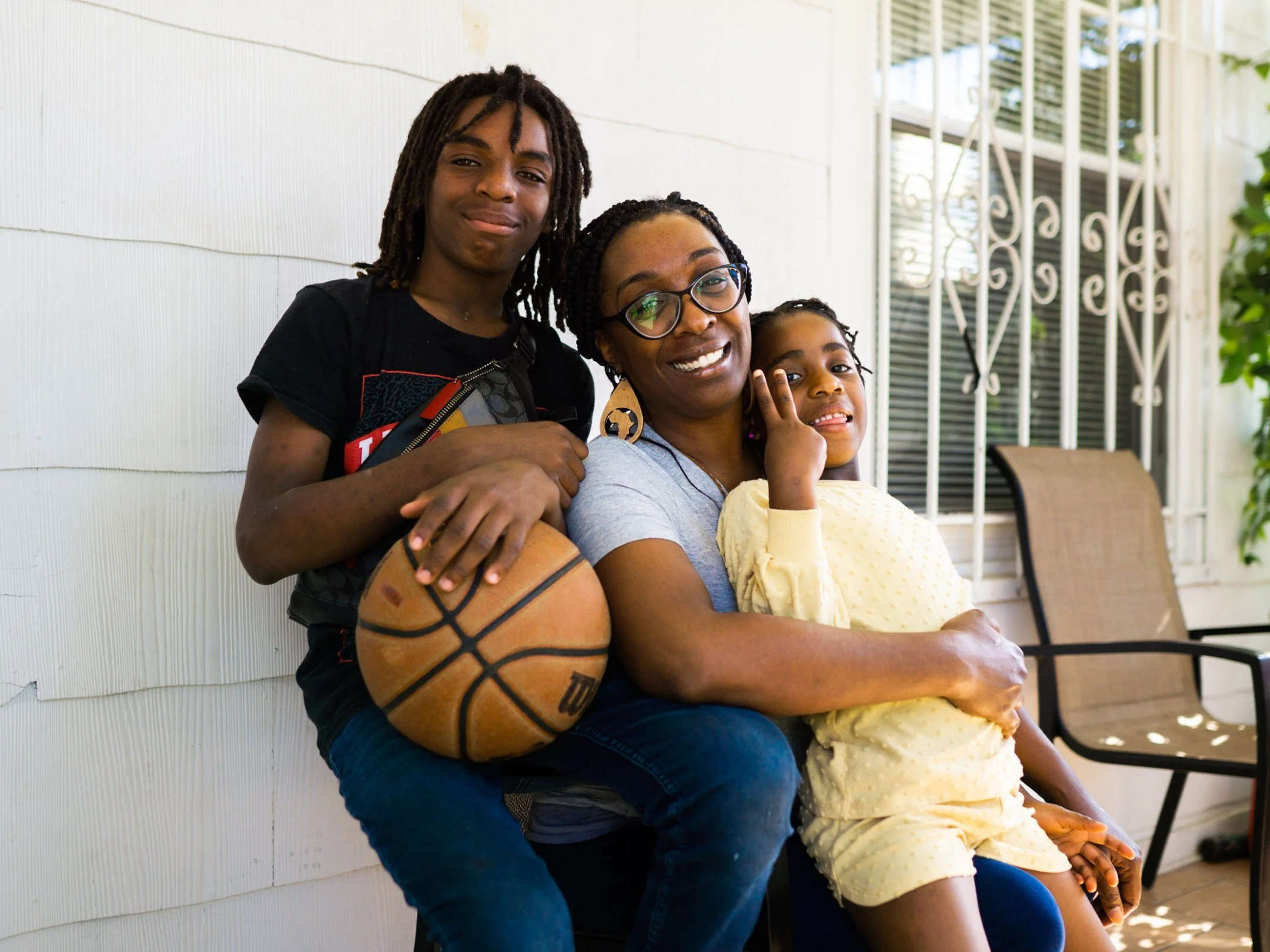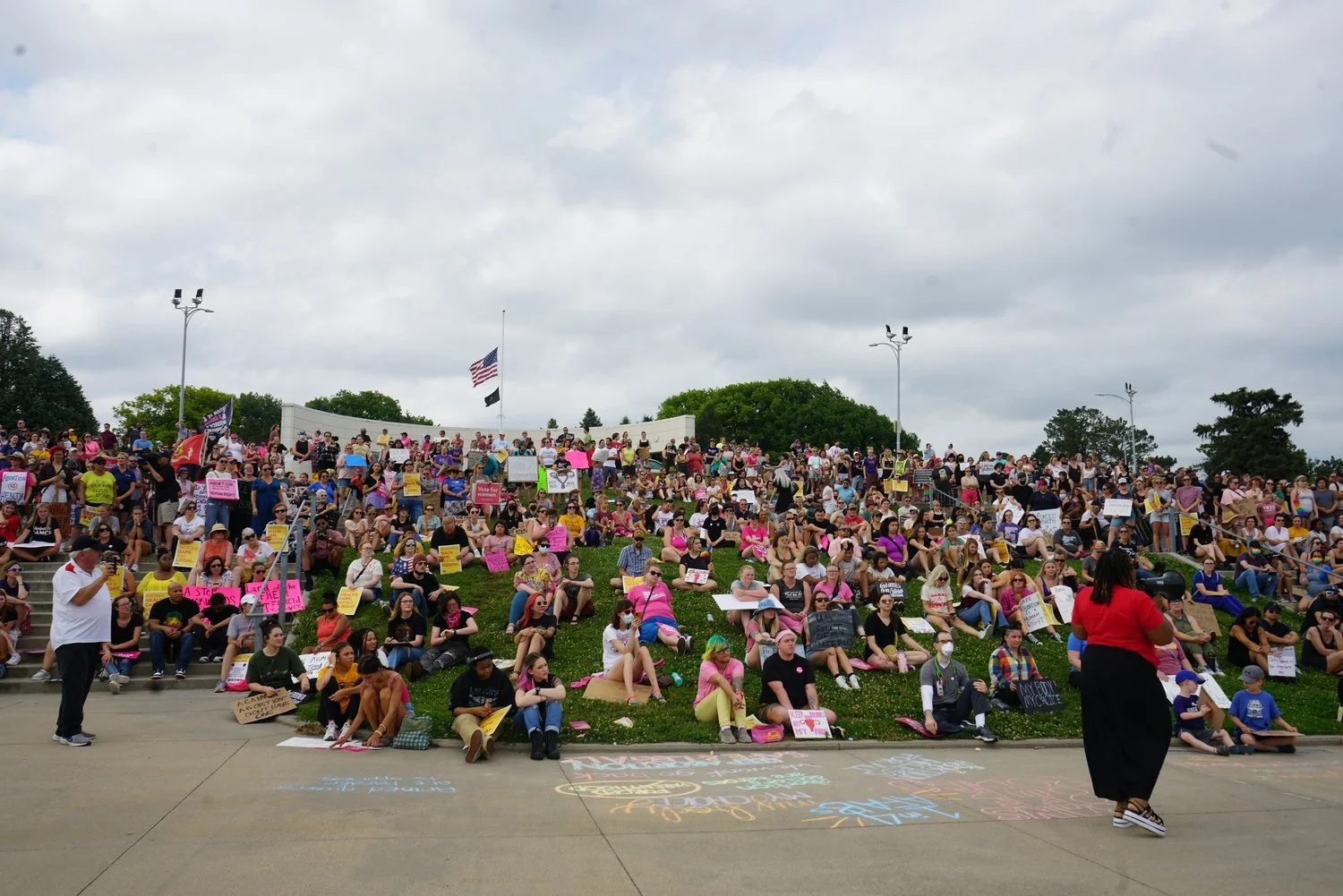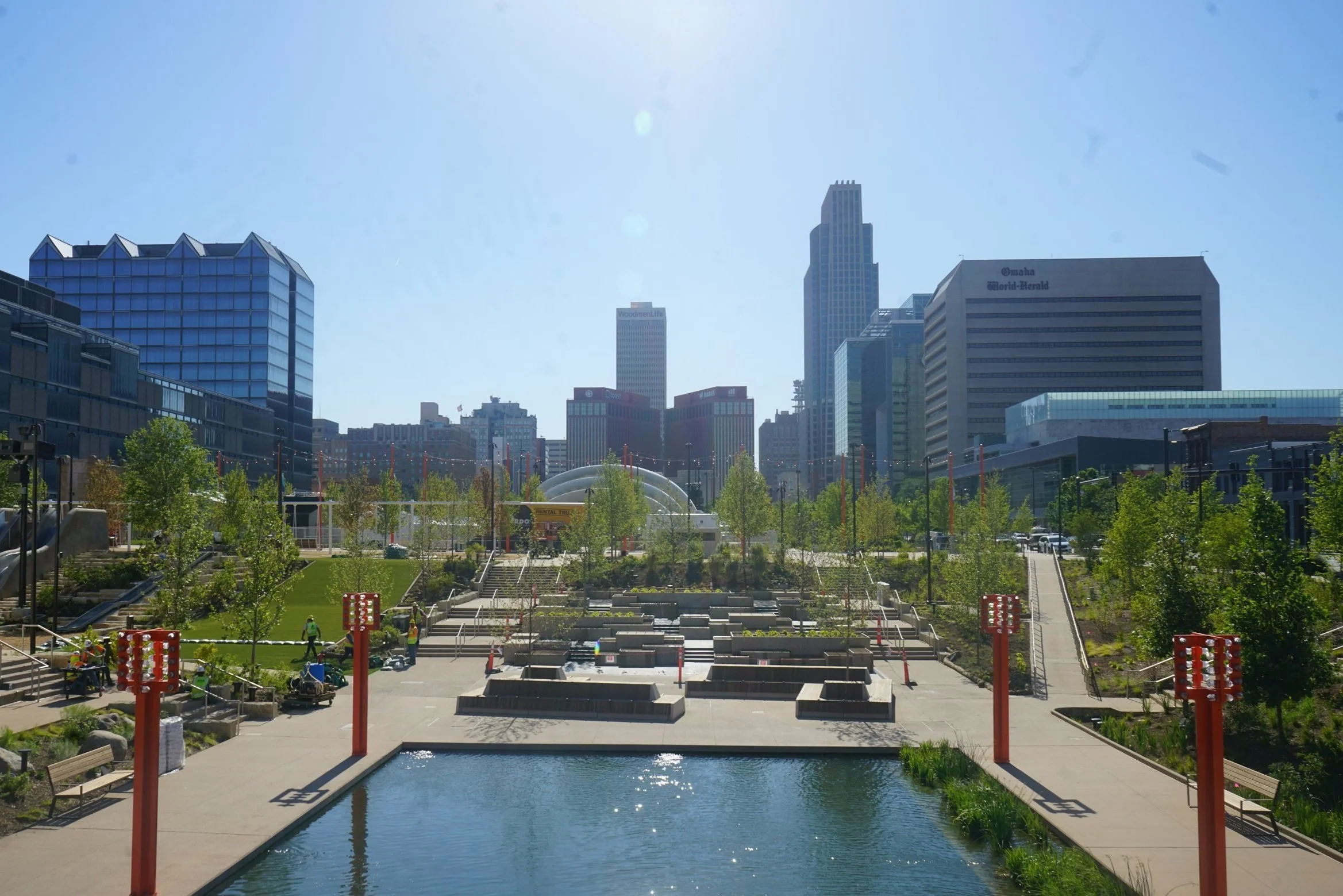Town Hall With Sen. Terrell McKinney: Criminal Justice Reform and Incoming Federal Money
By Kietryn Zychal
Black Votes Matter sponsored a December town hall (12/9) at the Fabric Lab featuring State Senator Terrell McKinney (LD 11). He prepared three fact sheets for the audience on the topics of:
The crime and justice task force and prison reform
For the past six months, Sen. McKinney has been meeting with a criminal justice task force which includes the governor, Sen. Steve Lathrop (LD 12) who is head of the Judiciary Committee, Sen. Suzanne Geist (LD 25), also a member of the Judiciary Committee, Douglas County Attorney Don Kleine and Public Defender Tom Riley, Omaha Police Chief Todd Schmaderer, and Chief Justice of the Nebraska Supreme Court Michael Heavican.
“We’ve been looking at our criminal justice data and trying to figure out ‘What do we need to do to fix our prison system?' The Department of Corrections is currently facing both a prison overcrowding crisis and a shortage of staff. “The governor wants to build a prison, something that I am strongly against,” he said.
“One of the reasons why building a prison makes no sense–– even if we build a prison, by the time that prison gets online, we’ll have to build another prison if we don’t address the prison overcrowding crisis.”
The fact sheet outlined exactly what is leading to this crisis; long sentences, not newly admitted prisoners. According to the fact sheet, The Nebraska prison population has gone up 21% over the last year, but the number of admissions is down.
The length of stay for incarcerated individuals has increased 38 percent in the last decade. In other words–– prisoners are not being released, causing the population to swell. It is a crisis created by state policy.
Recidivism rates have also increased over time. In 2018, 30% of individuals released returned to prison, up from 26% in 2008. Sen. McKinney said he tries to push the governor to “open his mind and understand that the solution is more on the front end of addressing the root causes of crime.” He told the governor, “Instead of investing $230 million in a prison, put that money into the communities where those people come from and you will see a difference.”
Since 2011, state expenditures on corrections have increased by over 50% to more than $270 million in 2020.
The staffing crisis negatively impacts prisoners’ ability to attend programming aimed at helping them successfully reenter society. Sen. McKinney said prisoners at Tecumseh and the Lincoln Correctional Center (LCC) are allowed to leave their cells from Monday through Thursday but are restricted from Friday through Sunday, creating issues with mental health and anger.
By the end of the year, the task force will release to the public a list of about 20 recommendations for reform. Sen. McKinney said they plan to “focus corrections resources on violent and high risk individuals, address significant regional differences across the state, minimize barriers to successful reentry, expand community-based services to increase placement options, support law enforcement collaboration, and ensure the sustainability of criminal justice reforms.”
Sen. McKinney said he doesn’t “trust the system,”
but he is trying to maintain optimism that the recommendations of the task force will be implemented.
He worries that county attorneys and police will attend Judiciary Committee hearings and “say no to the things that need to be changed.” He said the community needs to fill the Judiciary Committee hearings as well to say “yes” to the reforms. “If we don’t, the governor gets a prison, we don’t fix the system, and we’ve still got a prison overcrowding crisis.”
An audience member asked if people who are incarcerated were part of the process of determining what needs to be done to fix the system. McKinney said they were not, unless they contact a senator directly. “I’ve expressed that we should take the whole Judiciary Committee into the prisons and have hearings with incarcerated individuals. A lot of people are hesitant to do that, but I think that should be done.”
Another audience member who works with returning citizens pointed out that they are rarely able to secure housing because landlords will not rent to them, putting a burden on their families.
NOISE asked if there was enough land at the Nebraska State Penitentiary (NSP) in Lincoln to expand the existing facility instead of building a new prison. McKinney said NSP was built on a flood plain and some of the housing units are prone to flooding. He also said that the town of Fremont was under consideration as a site to construct a new prison.
ARPA and Infrastructure Funds:
There are two distinct pools of federal money coming to all states through the American Rescue Plan Act (ARPA) and the infrastructure bill. Each has different funding priorities. ARPA is intended to address the negative economic impacts caused by the public health emergency created by COVID-19.
Sen. McKinney said the county will spend a significant amount on mental health initiatives while the city has its own priorities. He and Sen. Justin Wayne (LD 13) have been working together on a proposal for North Omaha. He said that North Omaha’s needs are not considered separately–– they are lumped in with Omaha as a whole. Once their proposal is finalized, the senators will hold a community meeting to discuss it.
McKinney is a big proponent of investing in economic opportunity rather than nonprofits. “We can’t social program our way out of poverty,” he said.
An audience member spoke about the need to train welders, plumbers, electricians, construction workers, even maintenance workers. He said nonprofits should be creating programs to increase the workforce in the trades. He suggested economic opportunity in North Omaha would decrease the number of prisoners and benefit all of Omaha.
McKinney agreed with his economic approach. “Part of our plan is selling it that way, that this is an investment for the state, not just for North Omaha. It should improve the lives of all Nebraskans,” he said. He also said that he and Sen. Wayne intended to make sure this money gets into the hands of the right people rather than going to wealthy individuals who want to profit off development.
Preston Love moderated the event. He said the City of Omaha’s website contains information on their plan for ARPA funds. He encouraged attendees to familiarize themselves with the “guidance” for how to apply for this funding. (The mayor’s office said that guidelines for how to apply for the funds will be posted on the ARPA page on the city’s website in January). Love said the city anticipates hiring a third party to evaluate the proposals and choose which ones will receive funding.
Sen. McKinney stressed that there are different timelines and requirements for the city, county and state. The legislature will need to pass spending bills which will need to be signed by the governor. He did not anticipate the state spending ARPA funds until next summer.
Other topics discussed included spending on education and equitable funding for North Omaha schools, preparing OPS students for emerging industries, especially in high paying technology jobs that do not require a college degree, and expanding resources for parents so they can help their children succeed.
The Infrastructure Bill:
The infrastructure bill is intended for roads and bridges, transportation including airports, electric vehicle investments, high-speed internet and climate change mitigation. There is a provision in the bill providing $1 billion to reconnect communities that were divided by the highway system, often Black communities, as was done in the 1970s when the construction of 75 North demolished the heart of North Omaha. McKinney commented, “One thing that I’ve been looking at, that I think would be a good thing for North Omaha, is to reconnect North Omaha between I-75. A lot of other cities have begun rethinking what those highways are… I don’t think you ever right the wrongs of the past. But, I also think it’s a way to build up the economics of the community because it opens up space for development.” He mentioned turning the highway into green space, new homes and businesses. [...] “The possibilities are endless,” he said, “and it’s something I’ve been trying to gather more facts on and get more details on.”
Preston Love closed the event by stressing the importance of voting and announced that next Thursday, December 17 at 6 p.m., Democratic gubernatorial candidate Sen. Carol Blood will hold another town hall at the Fabric Lab, 2514 N. 24th St.













